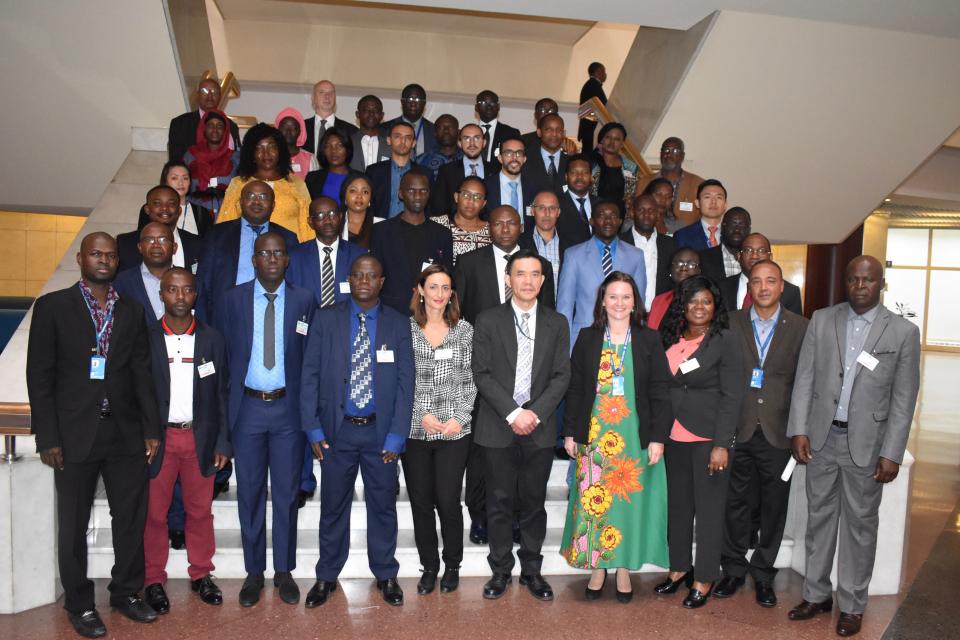Regional Seminar on Forest and Energy Accounts in Africa

Participants gather for a group photo on the first day of the regional seminar.
The African Centre for Statistics of the United Nations Economic Commission for Africa (ECA) held a regional seminar on the compilation and application of the SEEA energy and forest accounts from 3-6 September 2019 in Addis Ababa, Ethiopia. The seminar gathered over 35 participants from countries that are developing energy, forest and other SEEA accounts, including Burkina Faso, Burundi, Cameroon, Ghana, Morocco, Nigeria, Senegal and Zimbabwe. Experts from the United Nations Food and Agriculture Organisation (FAO), the United Nations Statistics Division (UNSD) and other technical experts also participated in the seminar.
The seminar was part of ECA’s capacity building programme on the compilation and application of physical supply and use tables in Africa. Under this programme, Burundi, Ghana and Nigeria are developing physical supply and use tables for energy while Cameroon, Morocco and Senegal are developing forest accounts. Since December 2018, the ECA has conducted several in-country missions under the programme to help build capacity within the national statistical offices, environmental protection agencies and involved line ministries, and the countries are expected to finish their first set of accounts by the end of 2019.
Participants at a national workshop in Ghana earlier this year to make progress on physical supply and user tables for energy.
Thus, the event provided a timely opportunity for participants to share experiences, difficulties and challenges, and lessons learned. Countries discussed technical issues, such as data estimation and conversion into common units. In addition, Jukka Muukkonen presented Finland’s experience in compiling forest accounts, including best practices. In addition to technical issues, participants also discussed inter-institutional collaboration, communication with stakeholders and dissemination, which are equally important to the success of the accounts. The compilation of the accounts has brought together national statistical offices, environmental protection agencies, national energy commissions and line ministries, initiating inter-institutional collaboration and formalized data-sharing agreements. In addition, multiple countries conducted a stakeholder analysis, categorizing stakeholders by both influence and interest. The stakeholder analysis and resulting communications strategy will help drive targeted dissemination and ensure demand for the accounts.
Lastly, participants discussed how the accounts could support measuring, monitoring and evaluating the Sustainable Development Goals (SDGs), particularly Goals 7 and 15. The SEEA provides information to inform 40 SDG indicators, and both energy and forest accounts provide valuable information to inform the SDGs. Countries were eager for the accounts to be used for the SDGs and better policy. In her presentation, Ms. Oyateide Narebor of the National Bureau of Statistics of Nigeria explained, “The bottom line of our energy accounts is to bring about economic development. With proper energy statistics, we will be able to do proper energy planning and to bring about detailed analysis.”
